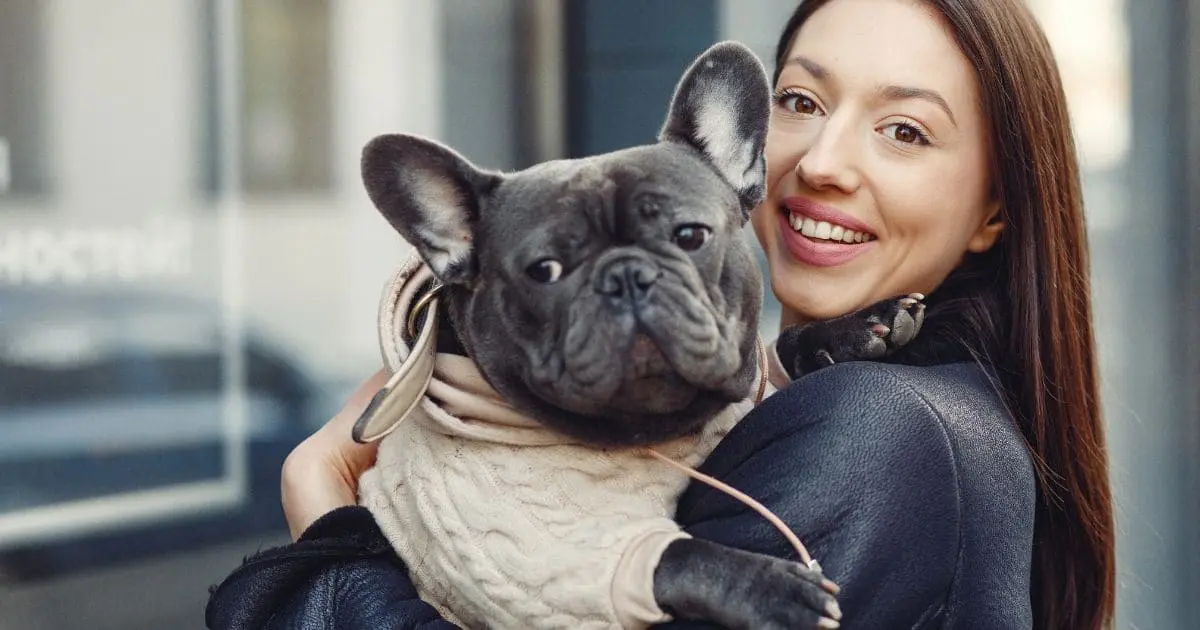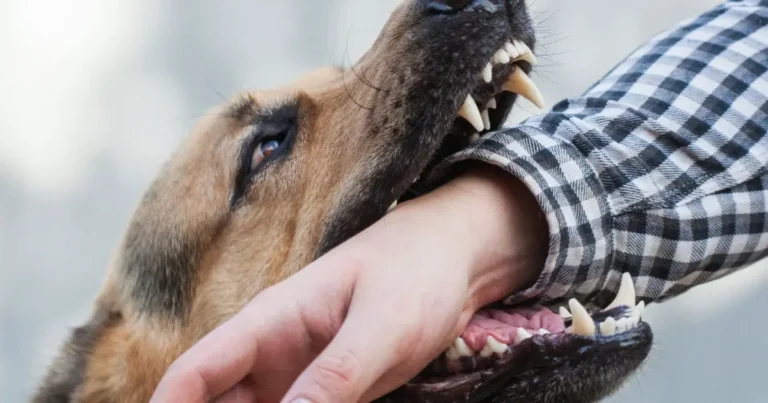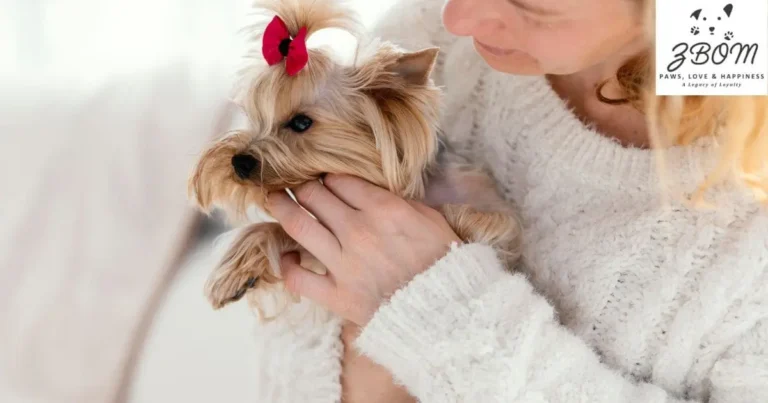
Do French Bulldogs Bite
If you’re considering bringing a do French Bulldogs bite into your home, or you’ve already got one and you’re dealing with some nipping issues, you’re probably wondering whether these adorable bat-eared companions have a biting problem. It’s a fair question, especially when you’re thinking about kids, other pets, or just your own fingers during playtime.
Here’s the honest answer: yes, French Bulldogs can bite, but so can literally every dog breed on the planet. The real question isn’t whether they’re capable of biting—it’s whether they’re naturally aggressive, why they might bite, and what you can do about it. And that’s where things get more interesting, because do French Bulldogs Bite have a reputation that doesn’t quite match up with reality.
Most people see that stocky build, those powerful jaws, and that stubborn streak Frenchies are famous for, and they start worrying about aggression. But anyone who’s actually spent time with do French Bulldogs Bite knows they’re typically gentle, affectionate goofballs who’d rather snuggle on your lap than cause any real trouble. They’re bred to be companion dogs, not guard dogs or fighters. That said, they’re still dogs with teeth, personalities, and the ability to get frustrated, scared, or overstimulated just like any other breed.
Also Read: How Old does a Dog have to be a Breed
The biting you’re most likely to encounter with a Frenchie isn’t aggression—it’s puppy mouthing, playful nipping, or occasionally a reaction to pain, fear, or poor socialization. Understanding why your French Bulldog bites, recognizing the warning signs, and knowing how to address the behavior properly makes all the difference between a well-mannered companion and an ongoing problem.
In this guide, we’ll break down everything you need to know about French Bulldog biting behavior—the good, the bad, and what you can actually do about it. Whether you’re dealing with a nippy puppy or concerned about potential aggression, you’ll get straight answers without the sugarcoating or scare tactics.
Short Answer About Understanding French Bulldogs
French Bulldogs are small, affectionate, and playful dogs known for their distinctive bat-like ears and charming personalities. They are a popular companion breed because of their friendly nature and adaptability to apartment living. Despite their sturdy appearance, French Bulldogs are sensitive and thrive on human companionship.
They don’t require much exercise but need regular playtime and short walks. Due to their flat faces, they can struggle with breathing in hot weather and should be kept cool. Proper care, a balanced diet, and regular vet check-ups help them stay healthy and happy.
Also Read: How to Choose the Best Whelping Box French Bulldogs
Understanding French Bulldogs

Before we dive into the question of aggression, it’s important to understand a bit about French Bulldogs and their complete breed profile. Understanding breed background, breed history, and breed origins provides essential context for evaluating breed temperament and personality traits.
Breed History and French Origin
These dogs are a small breed and sturdy breed that originated in France during the 1800s and 19th century. This French origin and breed history shaped the companion dogs we know today, with breed characteristics specifically developed for human companionship rather than working roles.
Distinctive Physical Features and Breed Characteristics
Frenchies are known for their distinctive physical features, most notably their bat ears and signature ears that stand upright on their head. This unique ear shape and upright ears create the recognizable appearance that defines the breed profile. Their sturdy build, compact size, and small size contribute to their small dog breed classification.
Also Read: How Many Puppies do French Bulldogs Have
Temperament and Personality Traits
French Bulldogs display affectionate personalities and playful personalities that define their breed temperament. This affectionate nature and playful nature make them ideal companion dogs with temperament suited for family life and close human interaction.
Maintenance Level and Care Requirements
Frenchies are generally low-maintenance dogs that are easy to care for with minimal care demands. The low maintenance and easy care nature, combined with straightforward care requirements, make the maintenance level manageable for most owners.
Exercise Needs and Physical Activity
These dogs don’t require a lot of exercise compared to larger dog breeds and large breeds. Their exercise needs and exercise requirements typically include up to an hour of daily exercise each day, with one hour exercise sufficient because of their smaller size and compact size. This physical activity level reflects appropriate exercise for their small size.
Size Comparison and Exercise Comparison
When conducting size comparison with other dog breeds such as Alsatians (German Shepherds) and Labrador Retrievers (Labs), the difference in exercise needs becomes clear. These larger dog breeds and large breeds typically need more exercise and have higher exercise needs to maintain a healthy weight and support weight maintenance, health maintenance, and quality of life. This exercise comparison demonstrates how breed size impacts physical activity requirements for dog wellness and life quality.
Also Read: How Much are Fluffy French Bulldogs
Comprehensive Breed Understanding
Understanding French Bulldogs requires recognizing their breed background from France in the 1800s, their breed origins as companion dogs, their breed characteristics including distinctive bat ears that stand upright on their head, their breed temperament featuring affectionate personalities and playful personalities, their low-maintenance dogs status with easy to care for requirements.
Their exercise needs of typically up to an hour each day because of their smaller size, and how they compare to other dog breeds such as Alsatians and Labrador Retrievers that typically need more exercise to maintain healthy weight and quality of life.
This complete breed profile of these dogs as a small breed and sturdy breed with French origin, signature ears and upright ears, affectionate nature and playful nature, low maintenance and minimal care requirements, manageable exercise requirements and daily exercise needs, compact size and small size creating different exercise comparison versus large breeds like German Shepherds and Labs with higher exercise needs for weight maintenance, health maintenance, and dog wellness provides the essential foundation before we dive into the question of aggression.
Also Read: How To Determine Black French Bulldog Cost
9 signs that your French Bulldog may be aggressive
French Bulldogs are known for their affectionate nature and playful nature, but like any other breed of dog, they have the potential to display aggressive behaviour and show aggressive behavior. As a responsible pet owner practicing responsible ownership and pet ownership, it is important to fulfill owner responsibility by being aware of the signs that your French Bulldog may be displaying aggressive behaviour.
Understanding warning signs, behavioral signs, and aggression indicators helps you recognize signs and identify aggression early. Here are nine signs to look out for that serve as behavior warning and aggression symptoms:
1. Growling and Snarling – Vocal Aggression
Growling or snarling represents vocal aggression and verbal warning through threatening sounds. This is a clear sign that your French Bulldog is feeling uncomfortable or threatened, displaying threat response through these warning sounds.
2. Biting and Nipping – Severe Aggression
Biting or nipping demonstrates bite behavior and nipping behavior. This is a more severe form of aggression and serious aggression that should not be ignored, as it represents direct physical contact.
Also Read: How to Estimate Long Haired French Bulldog Cost
3. Lunging – Forward Aggression
Lunging behavior occurs when a French Bulldog is lunging towards someone or something, displaying aggressive behaviour through forward aggression, charging behavior, and attack posture. This lunging demonstrates clear aggressive tendencies.
4. Raised Hackles – Physical Fear Response
Raised hackles and hackles raised (also called piloerection) occur when the fur on your French Bulldog’s back stands up as back fur rises, indicating they are feeling threatened or scared. This fear response and threat response shows defensive arousal.
5. Stiff Body Language – Rigid Stance
Do Fluffy Frenchies shed, Stiff body language appears when your French Bulldog is standing stiffly in a rigid stance and tense posture. Body posture with tail raised (tail position) and ears back (ear position) indicates they may be feeling aggressive, showing defensive posture.
6. Showing Teeth – Threatening Gesture
Showing teeth through baring their teeth creates teeth display and teeth baring. This is a clear sign of aggressive behaviour and threatening gesture that indicates potential escalation.
7. Overprotectiveness – Territorial and Protective Behavior
Overprotectiveness develops when French Bulldogs become overly protective of their owners or territory, leading to protective behavior and territorial aggression. This owner protection can cause them to become aggressive towards strangers, resulting in stranger aggression.
Also read: How to Find Reputable French Bulldog breeders Michigan
8. Fearfulness – Fear-Based Aggression
Fearfulness and fear can cause aggression in French Bulldogs, creating fear-based aggression and fear response. This happens especially when they feel cornered or trapped, as a cornered dog with trapped feeling may display panic aggression.
9. Excessive Barking – Barking Behavior
Excessive barking through barking excessively represents barking behavior and excessive vocalization. This could be a sign of aggressive behaviour and represents one of the more obvious signs that you may have an anxious dog or aggressive dog on your hands. This behavior indicates anxiety signs, anxious behavior, and potential behavioral issues.
Common misconceptions about French Bulldogs and aggression

One common misconception about French Bulldogs is that they are inherently aggressive dogs and naturally aggressive by nature. This is simply not true and represents one of many breed myths and breed misconceptions surrounding the dog breed. These false beliefs and untrue claims about inherent aggression don’t reflect the breed truth or reality about breed.
Like any breed, any breed can exhibit aggression under certain conditions and bite circumstances. A French Bulldog can exhibit aggressive behaviour or situational aggression if they feel threatened or feel anxious. However, this anxiety response and situational biting are not breed specific characteristics or a breed-specific trait. It is not characteristic specific to the breed, proving these aggression myths are part of the breed stereotype rather than breed characteristic reality.
Also Read: Why Does My Frenchie Keep Throwing Up
The True Nature of French Bulldogs
In fact, French Bulldogs are known for their friendly nature, friendly personalities, and sociable personalities. They are social dogs with a sociable nature that makes them excellent companions. Their personality description is far from the breed reputation suggested by popular misconceptions.
They are often described as clowns due to their goofy personality, goofy and playful behaviour, and fun-loving attitude. This clown-like and clownish behavior demonstrates their playful behavior and gentle temperament, which contradicts the false beliefs about the whole breed.
Addressing Biting Myths
Another misconception involves biting myths—the belief that French Bulldogs are biting prone or prone to biting with high bite tendency and bite risk. While any dog can bite under certain circumstances and any dog can bite during situational biting, Frenchies are not known for being particularly aggressive. This is contrary to belief and contrary to popular belief about the dog breed as a whole.
Also read: What Are Fluffy Frenchies Mixed With
Family-Friendly Companions
In fact, they are generally considered to be a good choice for families and family dogs because of their gentle nature and mild-mannered disposition. Their breed suitability makes them family-friendly, good with children, child-friendly, and suitable for families, including families with kids.
French Bulldogs are considered children safe and a kid-friendly breed, demonstrating they are gentle dogs and a non-aggressive breed. Their gentle temperament makes them an excellent choice for families with children, disproving the breed myths and breed misconceptions that have unfairly tarnished their breed reputation.
Understanding these breed truths helps dispel the false beliefs and untrue claims about inherent aggression, bite tendency, and naturally aggressive behavior, revealing the reality about breed characteristics and the true friendly nature of these social dogs.
Factors that can contribute to aggression in French Bulldogs
While French Bulldogs are not inherently aggressive, there are certain factors that can contribute to aggression and lead to aggression in any dog. Understanding the factors contributing to aggression, causes of aggression, and aggression triggers helps owners recognize behavioral issues and behavior problems before they escalate.
Environmental and Situational Influences
Environmental factors, situational factors, and external influences play significant roles as contributing factors in aggression development. These aggression causes can provoke aggression through various behavioral triggers that create circumstances that cause and conditions that lead to aggressive behaviour and aggressive behavior.
Understanding the underlying causes and root causes of aggression factors helps identify what causes aggression and why dogs become aggressive. The aggression influences and factors that trigger behavioral changes include elements that contribute to dog aggression and canine aggression, all of which represent variables affecting behavior and behavior influences.
Also Read: Why Is My Frenchies Nose Dry
Identifying Aggression Contributors and Risk Factors
Several aggression contributors serve as potential causes and possible triggers for temperament issues. Recognizing aggression risk and risk factors, along with predisposing factors, helps prevent the reasons for aggression from manifesting.
Medical and Health-Related Causes
Pain-related aggression often stems from medical causes and health-related aggression that owners may not immediately recognize. These physical discomforts can trigger aggressive behavior in dogs that are otherwise gentle and calm.
Socialization and Training Deficiencies
Socialization issues, including lack of training, poor socialization, and training deficiency, represent major contributing factors to behavioral problems. These deficiencies create conditions where dogs haven’t learned appropriate responses to various situations.
Past Experiences and Trauma
Negative experiences, past trauma, abuse history, neglect, and improper handling can all contribute to aggression development. These experiences create lasting behavioral triggers that manifest as aggressive behaviour in specific circumstances.
Also Read: How Long Are French Bulldogs Pregnant
Behavioral Triggers and Response Patterns
Understanding specific aggression types helps identify their root causes:
Environmental Triggers
- Environmental triggers combined with stress factors create situations that provoke aggression
- Anxiety triggers lead to anxiety-driven behavior and defensive aggression
- Fear responses manifest as fear-based aggression when dogs feel threatened
Territorial and Protective Responses
- Territorial behavior emerges as dogs defend their space
- Resource guarding occurs when protecting valued items
- Protective instincts activate in response to perceived threats
Frustration and Redirected Responses
- Frustration-based aggression develops when dogs cannot achieve desired outcomes
- Redirected aggression occurs when dogs cannot access the actual source of frustration
- These responses represent defensive aggression mechanisms
Biological and Genetic Factors
Dominance issues, hormonal factors, genetic predisposition, and breeding factors can serve as predisposing factors for aggression risk. While French Bulldogs are not inherently aggressive, understanding these biological variables affecting behavior helps owners recognize potential aggression contributors.
How Much Is A Frenchie, By identifying these certain factors, including environmental factors, situational factors, stress factors, anxiety triggers, socialization issues, medical causes, negative experiences, and hormonal factors, owners can better understand the causes of aggression and reasons for aggression. This knowledge helps prevent behavioral issues and behavior problems while addressing the underlying causes and root causes that lead to aggression in any dog, including French Bulldogs that are not inherently aggressive by nature.
Are French Bulldogs aggressive with cats?

One concern that many people have when considering a French Bulldog is whether or not they will get along with cats. The answer depends on multiple factors related to cats and dogs living together. As with any dog breed, compatibility varies based on the individual dog and their unique temperament.
Some Frenchies may be more tolerant and show higher tolerance levels toward cats than others. Cat tolerance and being tolerant of cats isn’t guaranteed, but understanding cat compatibility and feline compatibility helps set realistic expectations for a dog-cat relationship.
Successful Integration Through Training
However, with proper socialisation and proper socialization combined with training, it is possible for a Frenchie and cats to coexist peacefully and achieve peaceful coexistence. The socialization process and training methods focus on behavioral training that promotes compatibility with cats and living with cats harmoniously.
Understanding breed compatibility, species compatibility, and dog temperament with cats helps create a cat-friendly environment. While prey drive, chase instinct, and hunting instinct may influence dog reaction to cats, these can be managed through the introduction techniques and consistent training.
Introducing Your French Bulldog to Your Cat
If you have a cat or cat in home and are considering getting or considering getting a Frenchie, it’s important to introduce slowly and introduce carefully. This slow introduction and careful introduction establishes the foundation for successful integration.
Initial Introduction Steps:
Keep your French Bulldog on leash and keep on leash during the initial introduction and first meeting. Using a leash during introduction provides control during this supervised meeting and controlled introduction. This gradual introduction approach ensures a safe introduction for both pets.
Supervise interactions closely and monitor behavior throughout the process. Watch closely for signs of cat aggression, territorial issues, or negative dog reaction to cats during the pet introduction phase.
Building Positive Relationships
Reward good behaviour and reward good behavior with treats and praise as a form of positive reinforcement. These good behavior rewards encourage acceptance and help during the adaptation period and adjustment time.
Patience required during this process cannot be overstated. Building relationship and trust building between your pets takes time. Creating positive experiences through consistent training helps establish pet harmony and household harmony in your multi-pet household.
Creating Successful Cohabitation
The process of introducing pets and achieving cohabitation where pets are living together peacefully involves understanding the inter-species relationship dynamics. Managing territorial issues, space sharing, and resource management prevents conflicts in the household.
With proper introduction techniques, a gradual introduction approach, and supervised meeting protocols, you can achieve successful integration. Understanding prey drive, chase instinct, and hunting instinct helps you prepare for potential challenges.
The adaptation period and adjustment time vary for each individual dog and cat. Some Frenchies demonstrate natural cat tolerance and are more cat-friendly, showing better feline compatibility and dog temperament with cats from the start.
By focusing on proper socialisation, behavioral training, and socialization process fundamentals, you can help your French Bulldog develop compatibility with cats. Through training methods that emphasize positive reinforcement, treats and praise, and consistent training, you create the foundation for peaceful coexistence and pet harmony in your multi-pet household.
Are French Bulldogs aggressive to humans?
Many people express concern about French Bulldogs and their potential for being aggressive towards humans. However, the answer depends on the individual dog. Frenchies are generally friendly and affectionate towards people. This friendly and affectionate nature makes them one of the most people-friendly breeds.
Like any dog, do French Bulldogs bite can become aggressive under certain circumstances or in specific situations. To prevent aggression towards humans, it is important to socialise French Bulldogs from a young age. Young age socialization or early socialization helps in teaching appropriate behaviour and ensuring proper behavior around people. This socialization process and behavior training build essential people skills and support safe interactions.
Owners should focus on interaction training, behavioral teaching, and early training to ensure aggression prevention and aggression avoidance. Even the most well-behaved dog can become agitated or fearful in certain situations. Such stress responses, fear-based reactions, or protective behaviors may lead to situational aggression or unexpected reactions.
For child safety, always supervise with kids. A Frenchie with children should never be left unsupervised with children. Supervision is required because even a gentle and affectionate nature doesn’t eliminate the risk of unpredictable behavior. Never leave a Frenchie alone with children—constant monitoring and vigilant supervision are essential for incident prevention, bite prevention, and overall safety precautions.
Responsible ownership plays a key role in preventive measures and maintaining a friendly temperament and good behavior with humans. Through proper supervision, socialization importance, and responsible ownership, you can ensure your French Bulldogs bite remains gentle with people, exhibits good human temperament, and enjoys safe, positive human interaction.
What is rage syndrome in French Bulldogs?
Rage syndrome in a French Bulldog is a neurological disorder that can also affect certain breeds of dogs. This condition is characterized by sudden aggression and unprovoked aggression, which can be dangerous for dog and owners. The cause of rage syndrome is still being studied, but it is often linked to a genetic condition or inherited disorder that is passed down generations.
The symptoms of rage syndrome can include sudden unexplained aggression, growling, snarling, biting, and snapping. In some cases, the dog may start attacking owners, attacking people, or even attacking animals without any clear reason. These aggression episodes can be triggered by harmless triggers or insignificant events, such as a change in environment or a change in routine.
If you suspect rage syndrome, it is important to seek professional help. A veterinarian or animal behaviourist can provide a proper diagnosis, suggest treatment options, and help manage condition effectively. Early intervention can also help
How to prevent aggression in French Bulldogs to humans, cats and other dogs
A French Bulldog may show aggressive behaviour under certain circumstances, but there are several ways to minimise risk and promote calm, friendly conduct.
Socialisation plays a vital role in preventing aggression. It is important to expose to people, expose to animals, and expose to environments from a young age. Proper training and basic obedience training help develop appropriate behaviour, improving the dog’s behaviour around people and behaviour around animals. Regular training sessions allow owners to set daily routines and use commands effectively, which strengthens a better relationship between the owner and the dog.
Using positive reinforcement training is another key step. Always reward good behaviour with treats and praise to encourage expected behaviour and reinforce positive behaviour. Some owners may also benefit from professional training to teach the dog to obey commands. Implementing a reward system for good behaviour helps in building trust and improving overall obedience.
Maintaining proper medical care is equally essential. Ensure your dog receives regular veterinary care to rule out any underlying medical issues that may contribute to aggression.
Training and socialisation for French Bulldogs
Proper training and socialisation play a vital role in shaping the behaviour of an aggressive dog, especially when it comes to a Frenchie. Through consistent obedience training, your dog can learn appropriate behaviour, improving both behaviour around people and behaviour around animals.
The socialisation benefits are also crucial, as exposing your dog to new environments, sounds, and experiences helps them feel comfortable in different situations and can significantly prevent fear-based aggression. For an inexperienced owner, managing dog training on their own can be difficult, so it is often advisable to enrol in obedience classes or seek guidance from a professional trainer.
A skilled trainer can ensure that your Frenchie receives proper training and proper socialisation, which are necessary for developing calmness, confidence, and trust. With the right approach, your dog can transform from reactive or uncertain to a well-behaved pet that interacts safely and positively with others. Patience, consistency, and understanding are key factors in helping your dog adjust and thrive.
Over time, dedicated efforts in structured training and early social experiences will not only strengthen your bond but also help curb aggressive behaviour, creating a harmonious relationship between you, your pet, and the people or animals around them.
Conclusion
French Bulldogs bite are generally known for their affectionate, gentle, and playful personalities rather than for biting or showing aggression. However, like any dog, they can bite if they feel scared, anxious, threatened, or in pain. Biting is not a common trait in this breed but can occur due to lack of training, poor socialisation, or negative experiences.
The key to preventing biting behaviour in French Bulldogs is early socialisation, consistent training, and positive reinforcement. Teaching your Frenchie how to behave around people and other animals helps build confidence and reduces fear-based reactions. Regular exercise, mental stimulation, and proper care also play a role in keeping them calm and happy.
In short, while French Bulldogs can bite under certain circumstances, they are not naturally aggressive dogs. With responsible ownership, patience, and proper guidance, your French Bulldog is far more likely to be a loving, loyal, and well-behaved companion rather than a biter.
FAQ
Do French Bulldogs get aggressive?
French Bulldogs’ aggression from fear, poor socialization, or dominance issues shows growling, lunging, biting; manage with training, positive reinforcement, controlled social exposure, and vet or behaviorist consultation.
How do I make my Frenchie stop biting?
To discourage mouthing and hard biting, use opposite direction: gently push hand to make uncomfortable and prompt pull away; avoid harshly, avoid quickly, avoid shoving for safe mouth control and effective bite prevention using dog training techniques.
What is a bad behavior for a French Bulldog?
French Bulldogs have charming qualities but face behavioral challenges, including territorial tendencies, excessive barking at strangers or other animals, and guarding behavior over food or toys.
Do Frenchies get attached to one person?
Frenchies often bond with owners, showing possessive or clingy nature due to separation anxiety and feeling safe, reflecting strong owner attachment and emotional bond in their attachment behavior and overall dog behavior.
Why do Frenchies bite so much?
Biting and chewing is natural for Frenchie puppies during teething to ease gum discomfort; prevent biting by offering alternative chew toys or chew items, supporting healthy puppy behavior and dental relief during French Bulldog teething.







